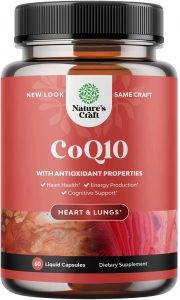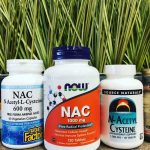What’s The Best Time To Take CoQ10: Morning Or Night?

Generally, we all want our medicines to be as effective as possible, and that requires effort on our part. It may be necessary to avoid taking pills with certain foods or drinks and to check that medications won’t interfere with each other.
And in some cases, it may be important to take a drug at a particular time of day. This approach, known as chronotherapy, is gaining attention as research suggests a relationship between when we take medications and how well they work.

What is Coenzyme Q10?
Coenzyme Q10 (CoQ10) is a substance that helps convert food into energy. CoQ10 is found in almost every cell in the body, and it is a powerful antioxidant.
Antioxidants fight damaging particles in the body known as free radicals, which damage cell membranes, tamper with DNA, and even cause cell death. Scientists believe free radicals contribute to the aging process, as well as a number of health problems, including heart disease and cancer. Antioxidants, such as CoQ10, can neutralize free radicals and may reduce or even help prevent some of the damage they cause.
Some researchers believe that CoQ10 may help with heart-related conditions because it can improve energy production in cells, prevent blood clot formation, and act as an antioxidant.
How does it work?
For the body to use CoQ10, it must convert it from its inactive form, ubiquinone, into its active form, ubiquinol. Mitochondria are responsible for powering the body’s cells. To do this, they use CoQ10 to produce the chemical adenosine triphosphate (ATP). This process is known as ATP synthesis. ATP is the primary source of energy for the body’s cells.
However, mitochondria produce free radicals during ATP synthesis.
Under normal conditions, free radicals regulate communication between cells and defend the body against infectious microbes. However, excess free radicals cause DNA damage, which can lead to the following:
• inflammation
• DNA mutations
• tissue damage
CoQ10 acts as an antioxidant by neutralizing free radicals. In this way, CoQ10 helps protect cells from the harmful effects of DNA damage.
What are the benefits of CoQ10?
Research on CoQ10 use for specific conditions and activities shows:
• Diabetes. Although more studies are needed, some research suggests that CoQ10 may help reduce low-density lipoprotein (LDL) cholesterol and total cholesterol levels in people with diabetes, lowering their risk of heart disease.
• Heart conditions. CoQ10 has been shown to improve symptoms of congestive heart failure. Although findings are mixed, CoQ10 might help reduce blood pressure. Some research also suggests that when combined with other nutrients, CoQ10 might aid recovery in people who’ve had bypass and heart valve surgeries.
• Migraines. Some research suggests that CoQ10 might decrease the frequency of these headaches.
• Parkinson’s disease. Recent research suggests that even high doses of CoQ10 don’t seem to improve symptoms in people with Parkinson’s disease.
• Physical performance. Because CoQ10 is involved in energy production, it’s believed that this supplement might improve your physical performance. However, research in this area has produced mixed results.
• Statin-induced myopathy. Some research suggests that CoQ10 might help ease the muscle weakness and pain sometimes associated with taking statins.
How much CoQ10 should you take?
According to WebMD, there is no established ideal dose of CoQ10. Studies have used doses of CoQ10 ranging from 50 milligrams to 1,200 milligrams in adults, sometimes split into several doses over the course of a day. A typical daily dose is 100 milligrams to 200 milligrams. Follow the instructions on the bottle or get advice from your doctor or a dietitian. Keep in mind that different supplement brands might have different ingredients and strengths.
When to take CoQ10: morning or night?
Studies have shown that CoQ10 is better taken at night with a meal containing fat so that your body can easily absorb it. CoQ10 is a fat-soluble supplement, it’s important to take it alongside a meal to maximize its absorption in the body. In particular, taking a CoQ10 supplement with a good source of fat can increase the bioavailability of CoQ10 and enhance its effectiveness.





